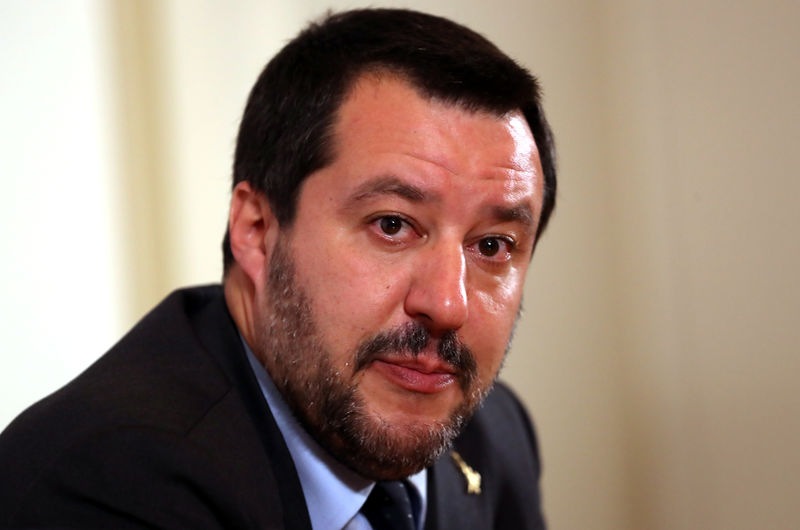 © Reuters. FILE PHOTO: Italian Deputy Prime Minister and right-wing League party leader Matteo Salvini attends a news conference at the Foreign Press Club in Rome
© Reuters. FILE PHOTO: Italian Deputy Prime Minister and right-wing League party leader Matteo Salvini attends a news conference at the Foreign Press Club in RomeROME (Reuters) – Deputy Prime Minister Matteo Salvini on Tuesday accused the European Central Bank of attacking Italy’s banking system, saying its request for local lenders to put aside more money to cover impaired loans could cost the country 15 billion euros ($17.14 billion).
Salvini, who heads the far-right League, said in a statement that the ECB move showed that the EU’s banking union was creating instability and said more transparency was needed to dispel any suspicion the central bank was politically motivated.
Earlier on Tuesday, a source told Reuters the ECB would give the banks it supervises a target date to fully provision for all of their bad debt, existing and new. The move surprised some investors and particularly spooked Italian lenders because many hoped the ECB would be more flexible.
Troubled lender Monte dei Paschi di Siena (MI:) said it was told to increase coverage for impaired loans by 2026, sending its shares down by more than 10 percent.
“The new attack by the ECB supervisor on the Italian banking system and MPS shows once again that the banking union … not only does not make our financial system more stable, but it causes instability,” Salvini said.
The far-right leader accused the ECB of overriding decisions made by the European Commission, adding that it raised a “fundamental question” about the bank’s supposed impartiality.
“Independence does not mean irresponsibility,” Salvini said, demanded greater transparency over its decision-making.
“This transparency is necessary to dispel the doubt that the ECB is making political use of the powers attributed to it. This latest foul play by the ECB could cost Italy 15 billion euros,” he added.
The Italian central bank was not immediately available for comment.
Fusion Media or anyone involved with Fusion Media will not accept any liability for loss or damage as a result of reliance on the information including data, quotes, charts and buy/sell signals contained within this website. Please be fully informed regarding the risks and costs associated with trading the financial markets, it is one of the riskiest investment forms possible.
Source: Investing.com



























